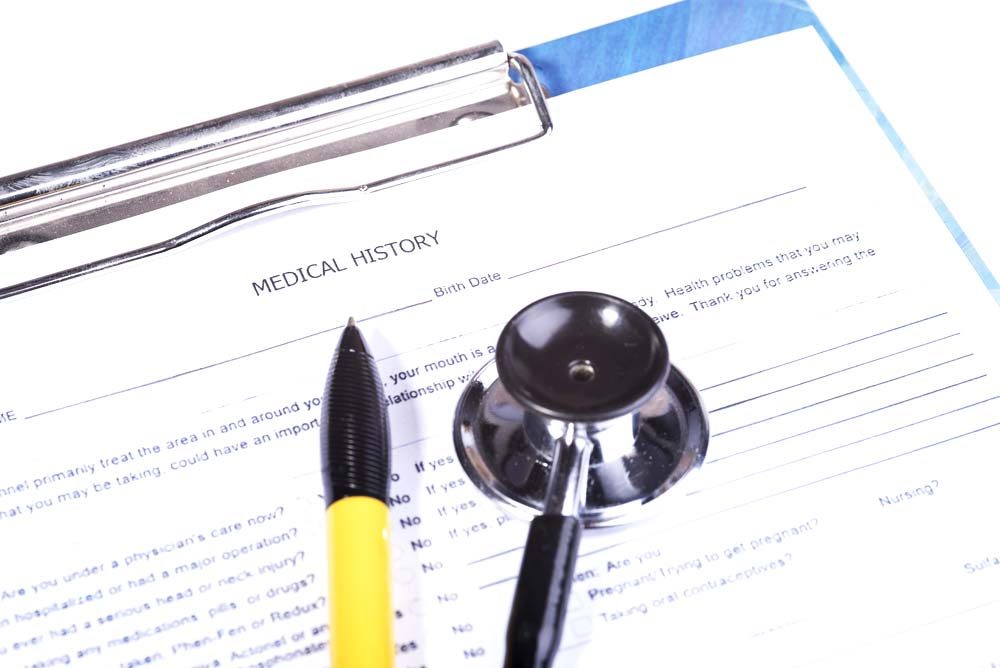
ER mistakes that may lead to misdiagnosis
You may go to the emergency room (ER) to receive care after a severe injury or for a potentially complicated and urgent medical condition. Upon arrival at the ER, you hope the emergency physician will provide a thorough explanation of your diagnosis and treatment. But first, as a patient, it’s your job to try to provide them with the information they need to lay the groundwork for an accurate diagnosis.

You don’t give a succinct, accurate summary of your symptoms
An ER doctor doesn’t need to hear about all your health problems from the time you were born, unless they are relevant to the current situation. They have a waiting room packed with patients and often not enough doctors to go around. “Patients have to understand that doctors need a simple, fairly straightforward summary of the sequence of events that happened to them,” says David Newman-Toker, MD, PhD, director of the division of neuro-visual & vestibular disorders at Johns Hopkins Medicine in Baltimore. Simply tell them what brought you to the ER, and be as precise and chronological as possible in your description.
It’s better to be safe than sorry: if you see these things on your body, call your doctor.

You don’t keep a timeline of symptoms
The moment you start feeling unwell or experiencing unusual aches and pains, write it down. If you document the symptom and frequency, it gives you an accurate health summary to tell the doctor and also helps them properly diagnose you. “Pay attention to patterns,” says Nicole Franks, MD, chief quality officer at Emory University Hospital Midtown in Atlanta. “Often when a patient presents with a problem and there’s no clear explanation, there’s an acknowledgment that something’s going on but it may not be identified.”
These are the heart attack symptoms that are most frequently misdiagnosed.

You don’t know your medical history
Meeting an ER doctor for the first time is like going on a blind date; neither of you knows anything about the other, including your medical history. Make sure to alert the ER doctor to any similar health experiences in the past, current health conditions (including blood sugar levels if you have diabetes or blood pressure and cholesterol numbers if you have a history of problems), and relevant family health history. Giving the ER doctor a sneak peek into your medical history helps them make a correct diagnosis. “The best thing that you can do is be honest and forthcoming about what is going on with your health, be a good participant, and answer questions,” says Dr. Franks. “Decision-making is only as good as the information that is presented.”
Don’t dismiss these symptoms that could signal huge health problems.

You don’t keep a list of medications
Keep a list of medications you are taking (and why) in your wallet or on your phone. This will help the doctor gauge what kind of health issues you have and make sure they don’t prescribe anything that could interact with what you’re currently taking. “People have to realize it’s a limited time and I know nothing about you to try to deduce what’s going on,” says Dr. Franks. “Any additional records, medications, allergies, response to medications, or any past history is helpful in coming to an appropriate reasonable decision.”

You don’t ask the right questions
It’s perfectly acceptable to politely probe the doctor about the diagnosis you’re handed. You are your own biggest health advocate. Don’t be timid if you want to know more about how they arrived at their diagnosis. “Asking questions means something more than just asking questions in a general sense; be a bit intentionally skeptical,” says Dr. Newman-Toker. A sample of smart questions are, “Could this be something more serious? What symptoms should I look for if it is more serious? What is it about my symptoms or health situation brought you to this diagnosis? I thought it was (insert health issue here), what do you think?” If you have a condition, research the questions you may want to ask.
On that note, here are the questions you should ask your pharmacist.

You’re afraid to ask for clarity
There’s no such thing as a dumb question when it comes to your health. Speak up and ask your doctor to break down the medical jargon for you. “Patients should ask questions about the diagnosis,” says Gordon Schiff, MD, primary care specialist at Brigham and Women’s Hospital in Boston. “You should at least make sure you’ve heard it and understand it, or [have your doctor] explain it.” Also, be straight with your doctor: There’s no point in lying to health professionals (and it can even be dangerous).

You don’t bring a friend with you
A trip to the ER is anything but a walk in the park. Bring a friend or family member with you to offer support and listen to what the healthcare workers have to say. A loved one may mention a symptom you forgot or ask questions you never thought to. “If you bring somebody with you to the ER that cares about you, you bring a second set of eyes and ears that can [listen and] hear,” says Stephen Anderson, MD, director of stroke services and co-chair of South King County MultiCare Health Foundation in Auburn, Washington. “Sometimes we don’t remember what people say in times of stress.”

You don’t trust your gut
If you aren’t confident that you have the correct diagnosis, go with your instinct and get a second opinion. “I think patients’ instincts about whether something doesn’t add up are more often right than wrong,” says Dr. Newman-Toker. “Sometimes getting a fresh set of eyes a few days later is what makes the difference.” Your worries may turn out to be unwarranted, but it’s better to be safe than sorry.
Here are the everyday medication mistakes that could make you sick.

You don’t follow up
You should follow up with your primary care physician to discuss your diagnosis or visit with a specialist if the ER doctor recommended you see one. “If you see one provider who interprets it as one way and if it continues to happen, do not be dismissive,” says Dr. Franks. “Sometimes things present a little vague and it may take some time to declare itself, so you should pay attention to those subtleties and follow up with your primary care if something still feels off.”
Next, learn how to get the most out of your next doctor’s visit.